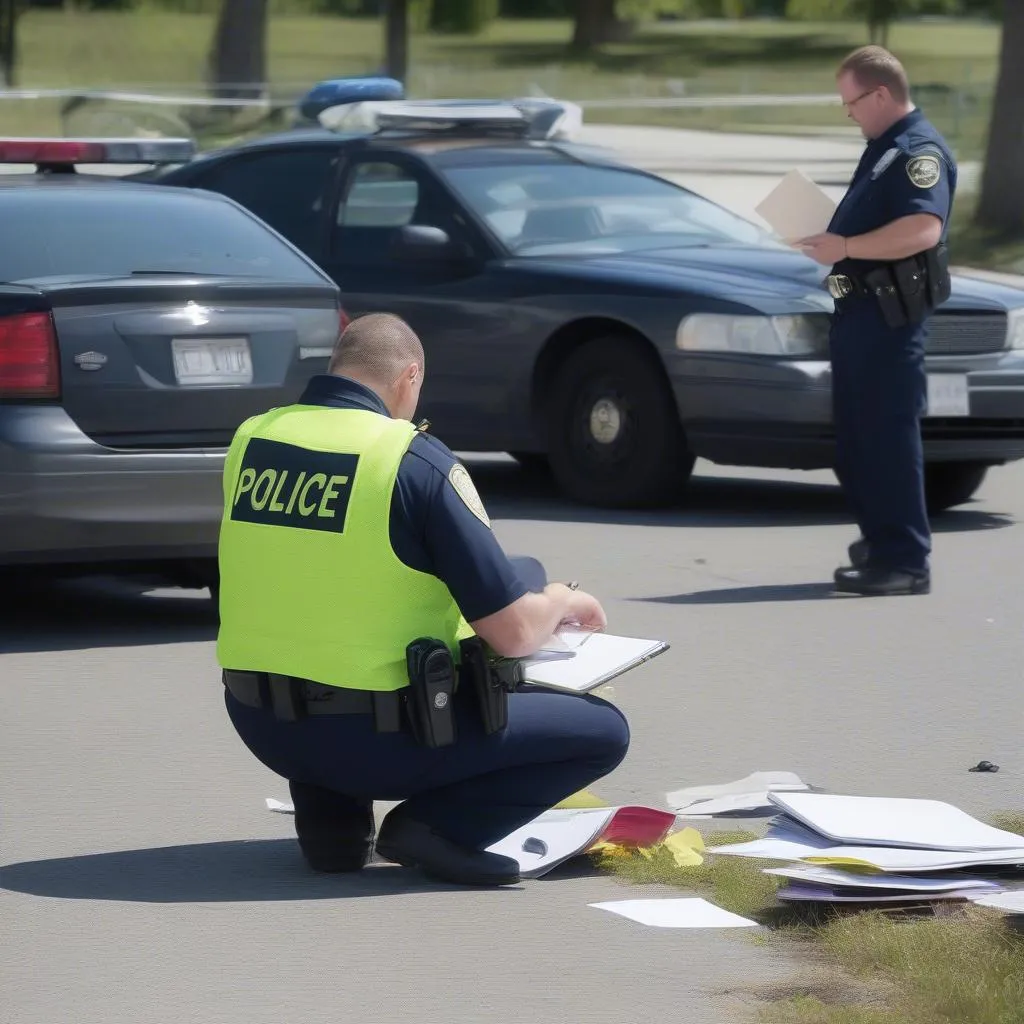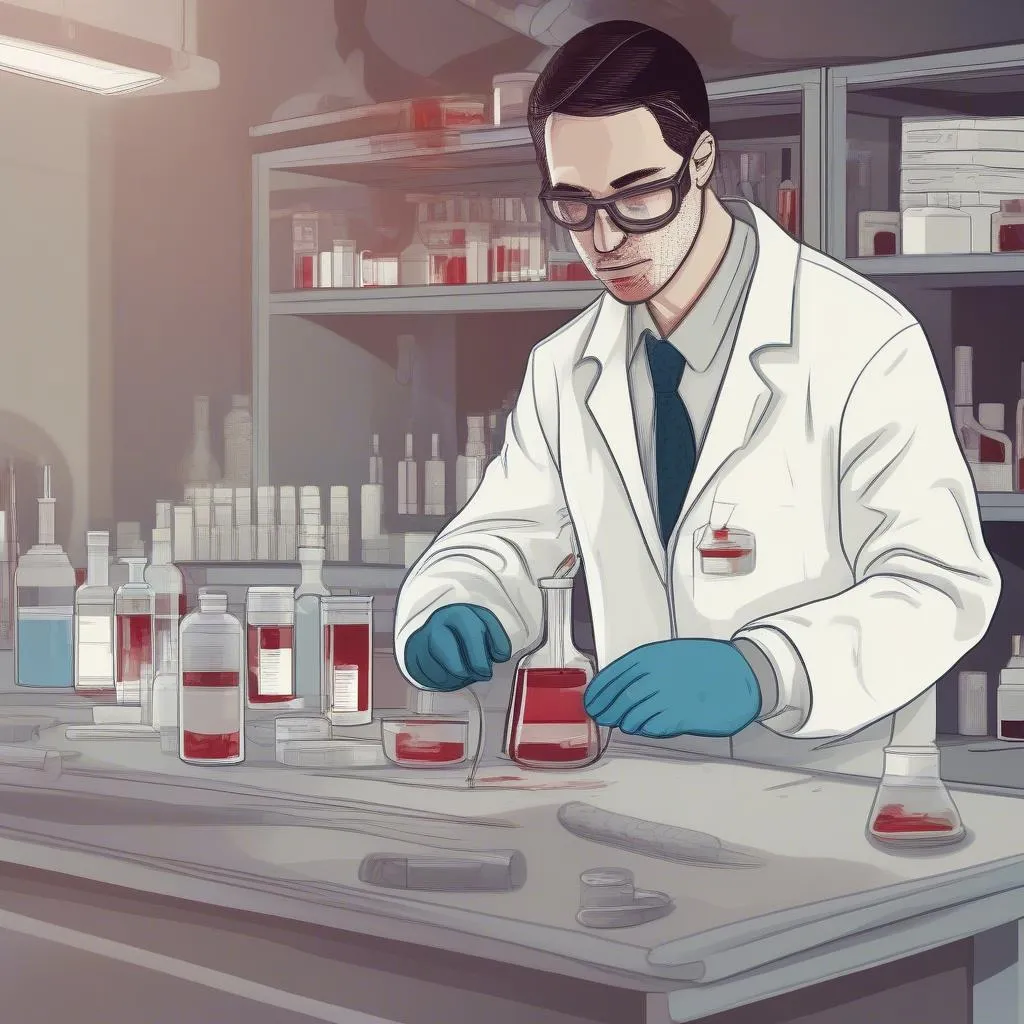Imagine this: you’re driving down a busy street in Chicago, maybe Michigan Avenue, when suddenly, a Honda Civic runs a red light and sideswipes your Ford Focus. You’re shaken, but seemingly okay. The other driver seems fine too. The police arrive, you exchange information, and everyone goes their separate ways.
But what happens if a few days later, you start experiencing headaches and neck pain? Could it be whiplash? Would the police need another blood draw after a car accident, even if they didn’t do one at the scene?
As a car enthusiast and someone who cares about your safety on the road, I’m here to break down the reasons behind a blood draw after a car accident and what it could mean for you.
Why Would There Be a Blood Draw After a Car Accident?
Let’s get to the heart of the matter. A blood draw after a car accident isn’t a standard procedure in every fender bender. However, it becomes a possibility under certain circumstances. Here are a few reasons why a blood draw might be conducted:
1. Suspicion of Driving Under the Influence (DUI)
This one’s a no-brainer. If law enforcement suspects that you were driving under the influence of alcohol or drugs, they might require a blood draw to determine your blood alcohol content (BAC) or the presence of other substances.
Dr. Mark Williams, a renowned toxicologist and author of “The Toxicology of Motor Vehicle Accidents”, explains, “Blood tests offer a more accurate representation of blood alcohol content compared to breathalyzers, especially hours after the accident.”
2. Severe Accidents and Personal Injury Cases
In the unfortunate event of a serious accident involving injuries, a blood draw might be necessary to determine if your injuries were pre-existing or a direct result of the accident. This is particularly important in personal injury lawsuits where the extent of your injuries directly impacts the settlement.
3. Determining Cause of Accident
Sometimes, accidents happen due to medical emergencies. A driver might suffer a heart attack or a stroke while behind the wheel, leading to the accident. In such cases, a blood draw can help medical professionals understand the root cause of the accident.
 accident investigation
accident investigation
Your Rights and Options Regarding Blood Draws
Now, you might be wondering, “Can I refuse a blood draw after a car accident?” The answer is a bit nuanced.
In most states, refusing a blood test if you’re suspected of DUI can lead to automatic license suspension or other penalties. However, in cases where there’s no suspicion of DUI, your rights vary from state to state. It’s best to consult with a legal professional to understand your rights in your specific jurisdiction.
What Happens to Your Blood Sample?
Once your blood is drawn, it’s usually sent to a certified laboratory for analysis. The results are then shared with the relevant authorities, such as the police or your insurance company.
How to Prepare for a Possible Blood Draw
If you’re ever involved in a car accident, especially a serious one, here are a few things you can do:
- Stay Calm: Easier said than done, right? But keeping a clear head can help you remember details and make informed decisions.
- Seek Medical Attention: Your health is paramount. If you’re injured, get checked out by a medical professional immediately.
- Contact Your Insurance Company: Report the accident to your insurance company as soon as possible.
- Consult an Attorney: If you believe your rights were violated or if you’re considering filing a personal injury lawsuit, consult an experienced attorney.
FAQs About Blood Draw After a Car Accident
1. How long after a car accident can a blood test be done?
The time frame for a blood test can vary depending on the circumstances and the substance being tested. Alcohol, for example, metabolizes faster than drugs, so the window for an accurate blood alcohol content reading is smaller.
2. What if I refuse a blood test after a car accident?
As mentioned earlier, refusing a DUI blood test can lead to legal consequences, including license suspension. It’s crucial to understand your state’s laws and the potential implications of refusal.
 blood sample analysis
blood sample analysis
Need More Information? We Can Help!
Dealing with the aftermath of a car accident can be overwhelming. If you have any more questions about blood draws, legal rights, or need assistance with any automotive diagnostics or repair, feel free to reach out to us. Our team of experts at Tech Car USA is here to help 24/7. Contact us on Whatsapp at +84767531508. We’re dedicated to keeping you safe and informed on the road.
This article is for informational purposes only and should not be construed as legal advice. Always consult with a qualified professional for legal guidance specific to your situation.